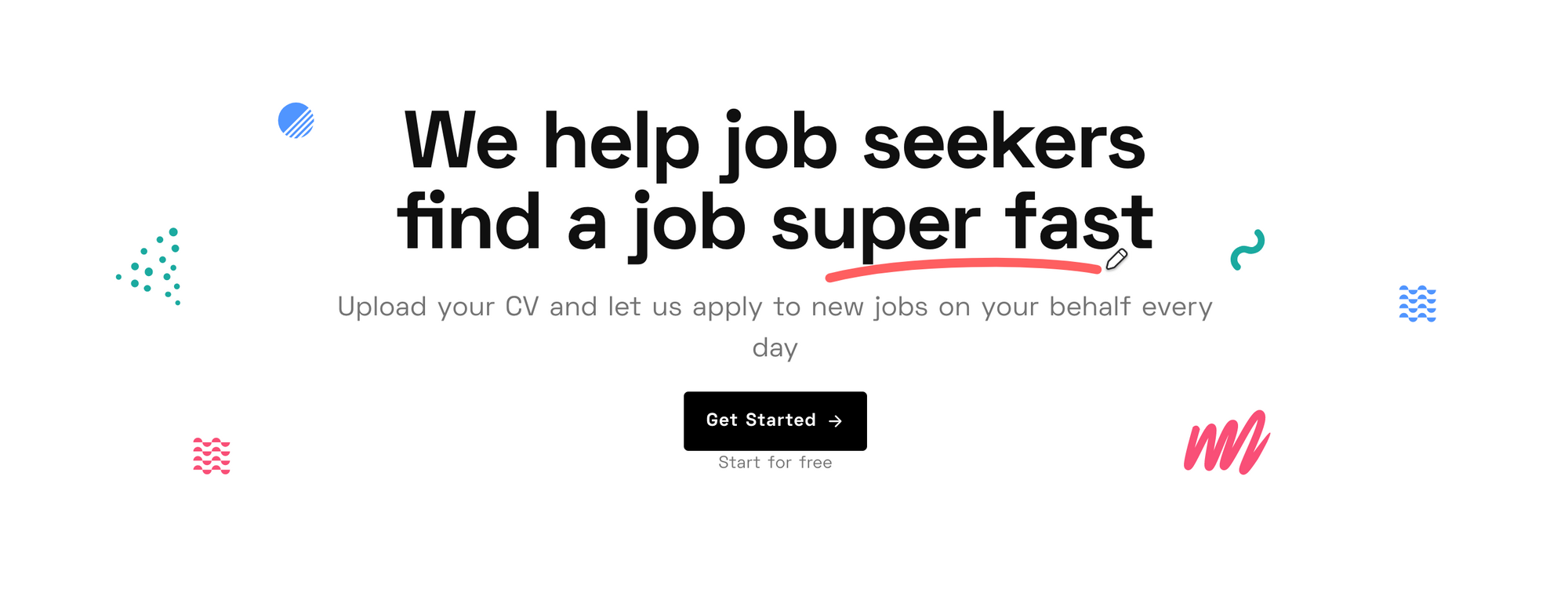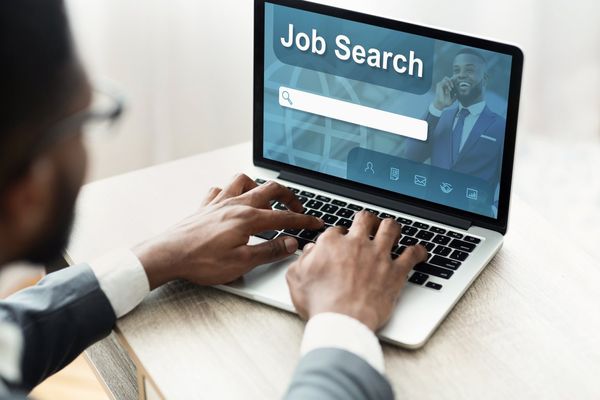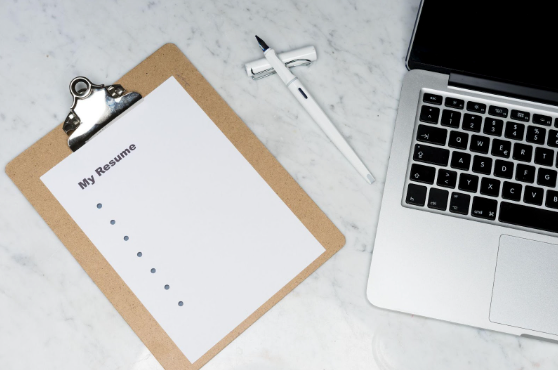How To Overcome Job Interview Anxiety & Land Your Dream Job
The interview experience is a breeding ground for anxiety, nervousness, and stress. If you are someone who becomes nervous very easily when faced with an interview situation, remember that you are not the only one – not by far.
» FREE TRIAL: Get Started with LoopCV & Send Out 100s of Highly-Targeted Job Applications in <10 Minutes
Interview nerves and anxieties are perfectly normal feelings; they can affirm that you care about the interview and its outcome.
Interviewers are aware of such feelings and will do what they can to help.
This guide takes you through the reasons for job interview anxiety and offers some tips to minimise these feelings and their impacts.
Why You Get So Nervous Prior To an Interview

There are fascinating biological and psychological responses to attending job interviews. Like in any stressful situation, your body will release adrenaline in response to interviews.
This is an evolutionary trigger connected to ‘fight or flight’, where humans are conditioned to flee harmful situations.
Adrenaline increases the feeling of stress and ‘edginess’. This impacts how we feel in the run up to interviews, and our performance during them.
Behaviours and circumstances that are commonplace in the run up to interviews also contribute to anxiety. We might have a morning coffee before an interview and may skip breakfast, because of nerves.
Caffeine increases anxiety, even more so when it is consumed on an empty stomach. Even wearing a business suit can subconsciously ratchet up the importance of the meeting.
Candidates will often treat the interview like an extension of their day job, feeling obligated to perform rather than offer what they already know.
Given that many (but not all) people attend interviews because either they are unhappy in their current job or are currently unemployed, such context increases job interview anxiety even further. Additionally, seeing as you are often given notice to attend an interview, this offers you ample time to mull over all the horrible “what ifs” in the run up to the meeting.
There are some incorrect assumptions which significantly contribute to pre-interview nerves. The first is that a typical job interview gives the impression of imbalance of power; that the interview has all the power (i.e., they will be doing all the questioning, and making the decisions) and as a result, the candidate subjugates, being a ‘passenger’ in the process.
The second is that the job interview reflects your work, and your competence. Candidates will treat the interview like an extension of their day job, feeling obligated to perform. This risk here is perceiving failure in an interview as a professional setback and reflection of incapability.
How To Calm Your Job Interview Nerves

There are ways to calm your nerves even when everything seems impossible to handle. These 7 steps will help with overcoming your fear of interviews:
Step #1: Effective Preparation
Preparation is an essential part of interviewing. Not only will preparation ensure you are best placed for interview success, but it will also minimise nerves through the feeling that you are ready for almost anything the meeting can throw at you.
There are many elements to preparing for an interview.
It begins almost before you have applied for a job, with creating an effective CV or résumé, one which effectively preempts or answers any questions an interviewer might want to clarify.
This would include any gaps in employment or clarifying any vague job responsibilities, or those which do not align with the job descriptions or roles you are applying for.
Reviewing the job descriptions of positions you are interviewing for is essential.
Most companies will ask behavioural interview questions which focus on the candidate providing clear examples of past performance in certain competencies or skills.
Understanding the job description will help you prepare examples of requirements the interviewer might be looking for.
Once you have these requirements, put them into a spreadsheet or table document and revise them, once a day, in the run up to the interview. Rehearsing these before the interview is critical and will make you feel a little more relaxed as you walk into the meeting.
Step #2: Adopting The ‘Two-Way’ Mindset
The balance of power in an interview is a lot more finely balanced than people think it is. Interviewers are certainly on the hunt for the right person to join the team, but equally you can use the interview process to understand if the organisation is the right place for you to work.
Going into the interview with the mindset of it being a meeting of two business partners, rather than interviewer and candidate, will help you visualise your expectations of the meeting.
There is a lot of information you can pick up from the interview process, for example the behaviour of the interviewers and the experience you get in their office or via Teams.
Asking questions at the end of the interview will help you understand the environment and expectations and whether this is the right place for you to work.
Step #3: Recruiters Do Not Interview Just Anybody
Getting to the interview stage is an indication that the recruiter sees potential in you. One interview takes a lot of time out of a recruiter’s day, and they will want to ensure this time is taken up with only the best of the best.
This is not to say that you would certainly get the job, but by the time you get to the interview stage, the odds are certainly tipping in your favour. Provided you have a strong CV or résumé (see above), recruiters will know by now that on paper, you can probably do the job.
They are predominately looking for a good cultural ‘fit’, and whether you will complement the team and the environment. There isn’t a perfect way you can prepare for this but researching the organisation’s values and its culture will certainly help.
Step #4: Eat the Frog
As part of your preparation, deal with your weakest or most concerning areas first.
For example, if there is an area of the job description that you are not completely aligned with, or there is a blip or a gap in your work history, then focus on preparing responses to these areas as a priority, even if this makes you uncomfortable or nervous.
Being as confident as you can be in our development areas is a great way to minimise nerves. Interviewing can be like a game of chess, where you need to think a few moves ahead.
Pre-empt questions which might come up in your interview, especially to areas that you think you need to explain more carefully.
Step #5: Focusing On The Hour Before
Minimise stressors which will arise on the day of the interview.
Rehearse the route to the interview the day before, to understand when you need to leave home and pre-empting any travel difficulties. Planning what you are going to wear the night before will remove one less decision in the morning as well!
On the day of the interview, avoid drinking caffeine, and if you do, drink it with a little food to calm your stomach. Clear your diary a little so you are not too busy as the interview time approaches. Finally, try to not arrive too early for the interview as this will increase the time spent in the reception, overthinking what is to come.
Step #6: The Interviewers Want You To Succeed
They might give you a rough time in the interview, but make no mistake, interviewers will help you succeed. Listen to their questions and answer them as needed. If interviewers think you have not fully answered the question, they will ask a follow up question.
Interviewers will do what they can to minimise nerves as this will enable them to get the best out of you. When they offer water, accept it, as this will help you pace yourself in the meeting and ensure your mouth does not dry up. If they ask you to “Take your time”, then don’t be afraid to pause and take a moment to come up with your best answer.
Step #7: The AWARE Technique
Those candidates who do suffer from more persistent or extreme anxieties before interviews might want to use the AWARE technique to help.
AWARE stands for ‘Accept’, ‘Watch’, ‘Actions’, ‘Repeat’ and ‘End’. With Aware, you accept that you will get anxiety in certain situations. ‘Watching’ involves evaluating your responses and viewing how you act, almost as an outsider looking in.
‘Action’ covers a wide array of coping measures, such as deep breathing, counting to ten – whatever might work for you – before repeating these behaviours as needed. ‘End’ refers to the understanding that every moment of anxiety will pass.
Find The Right Job Interview Opportunities

Understanding how to overcome job interview anxiety begins with knowing which the best roles are to apply for in the first place. These are ones which will cause you the smallest degree of anxiety as you will feel more aligned to them.
As a candidate, you should take time to map out your own values, expectations and skills and research companies which have an environment and culture which would be a good fit for you.
LoopCV supports you in this hunt for the perfect company with excellent cultural fit.
Through using your CV or résumé, along with other information you can provide in the set-up process, LoopCV can automatically apply for the best jobs on your behalf, ensuring that you are matched to only the closest-fitting roles, ones which align to your skills, knowledge, values and other requirements. This is a great way to remove some of the stressors from interviews, allowing you to focus on performing in the meeting at your very best.
Originally published Jul 26 2021
Frequently asked questions
How do I deal with social anxiety in an interview?
Preparing for job interviews is the best way to remove anxiety. You can map out answers and plan questions on a spreadsheet, and go into the meeting with the best idea of what you are going to say. Adopting the correct mindset that interviews are a two way process, with recruiters trying to support you, is also an important step.
What is the best job for someone with social anxiety?
The best job for some with social anxiety is one which is aligned with their values and beliefs. Finding jobs with good alignment will ensure the person is supported and nurtured during their employment, allowing them to perform at their best.
How do I get a job if I have social anxiety?
Taking time to prepare for the interview and work on a positive mindset before the interview are crucial steps. Map out where you are going, ensure that you are drinking plenty of water and having a plan of attack for the interview will ensure that you are maximising your chances of success.
Should I mention my anxiety in an interview?
You can mention your anxiety, but there is little point in doing so. The best interviewers will automatically be working on the assumption that you - like most other candidates - will be nervous and will employ a range of words and actions to alleviate anxiety as the meeting progresses.



